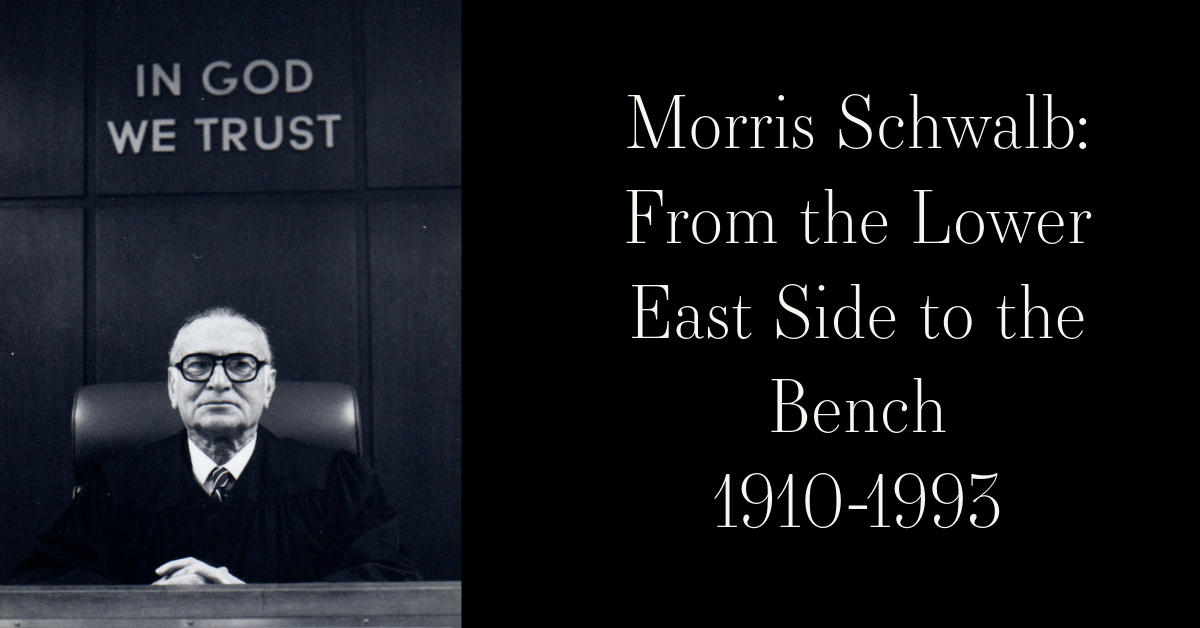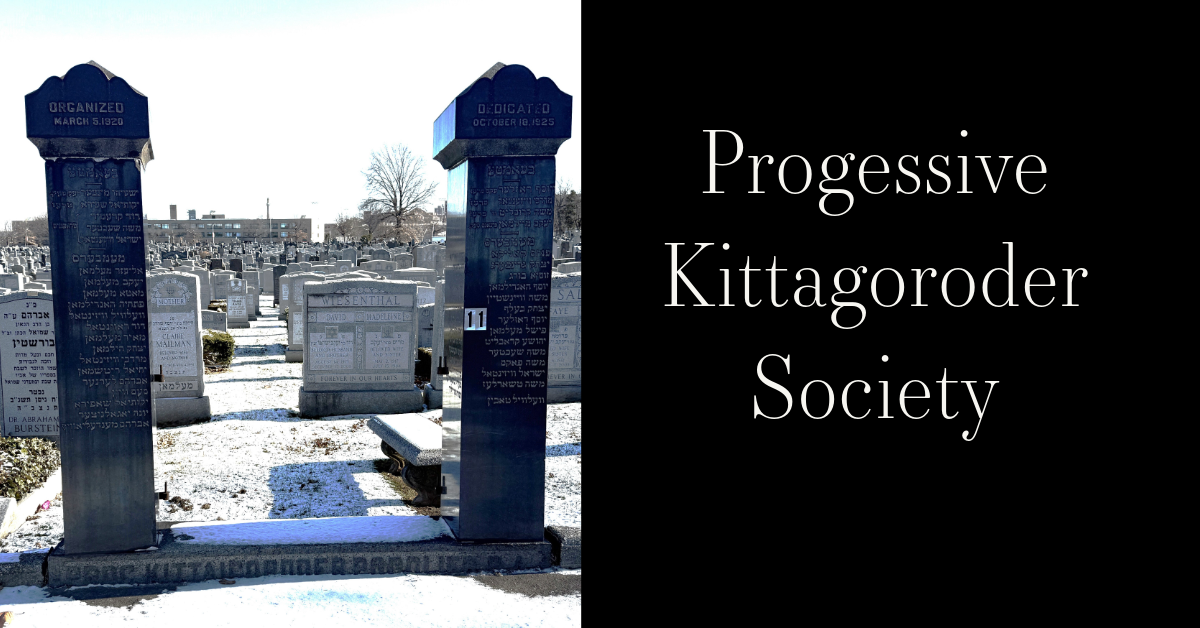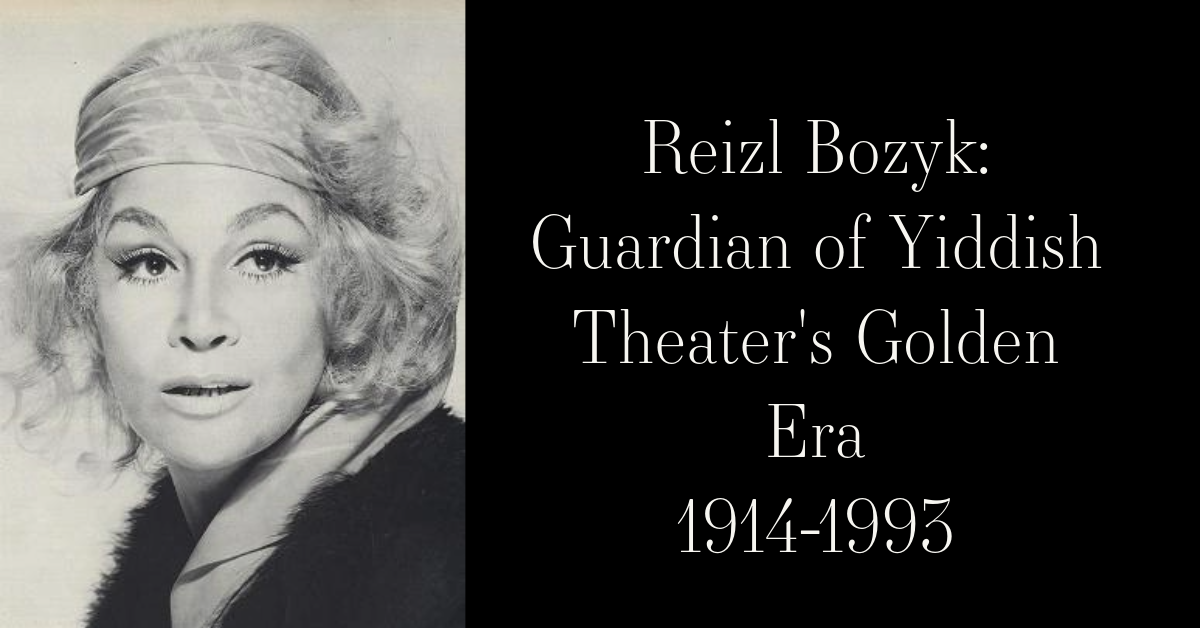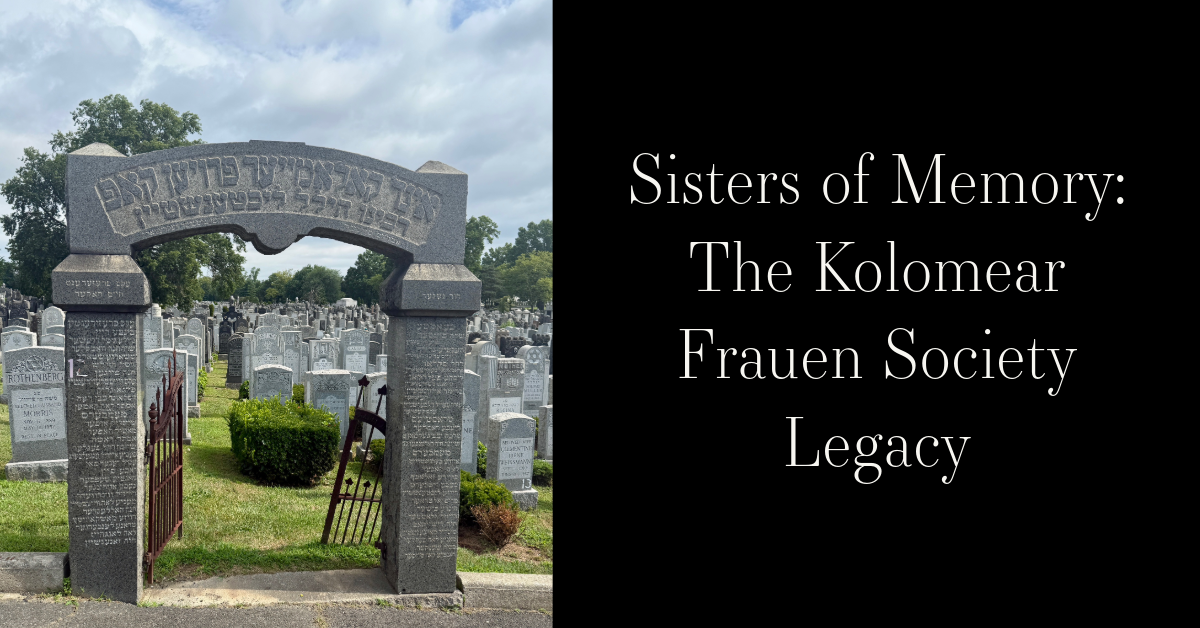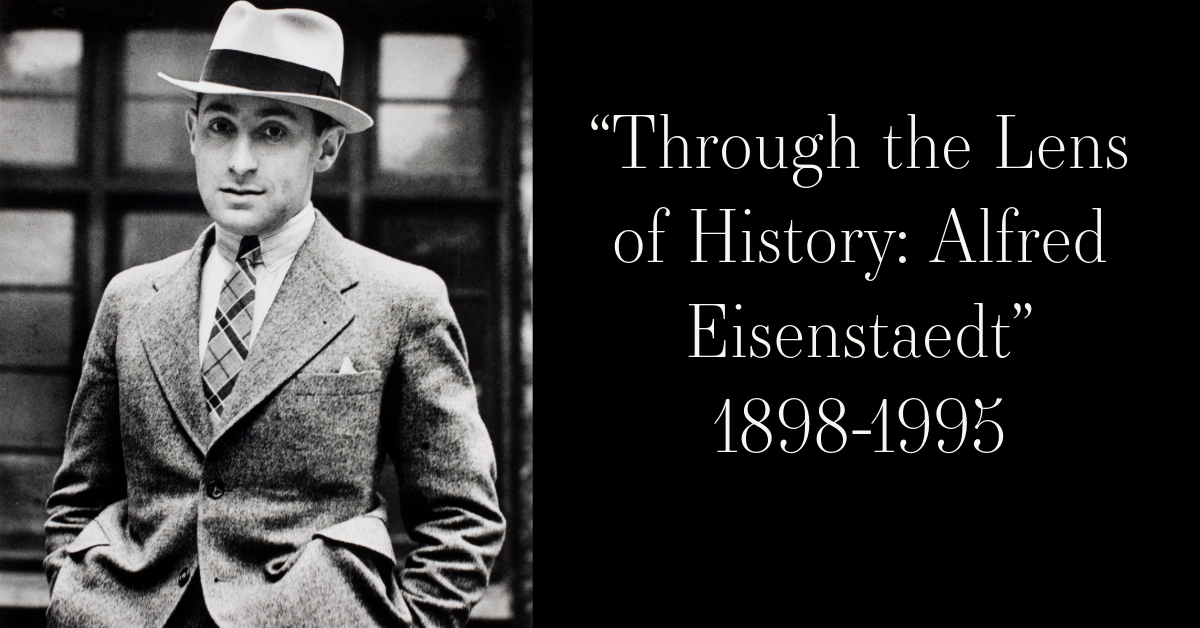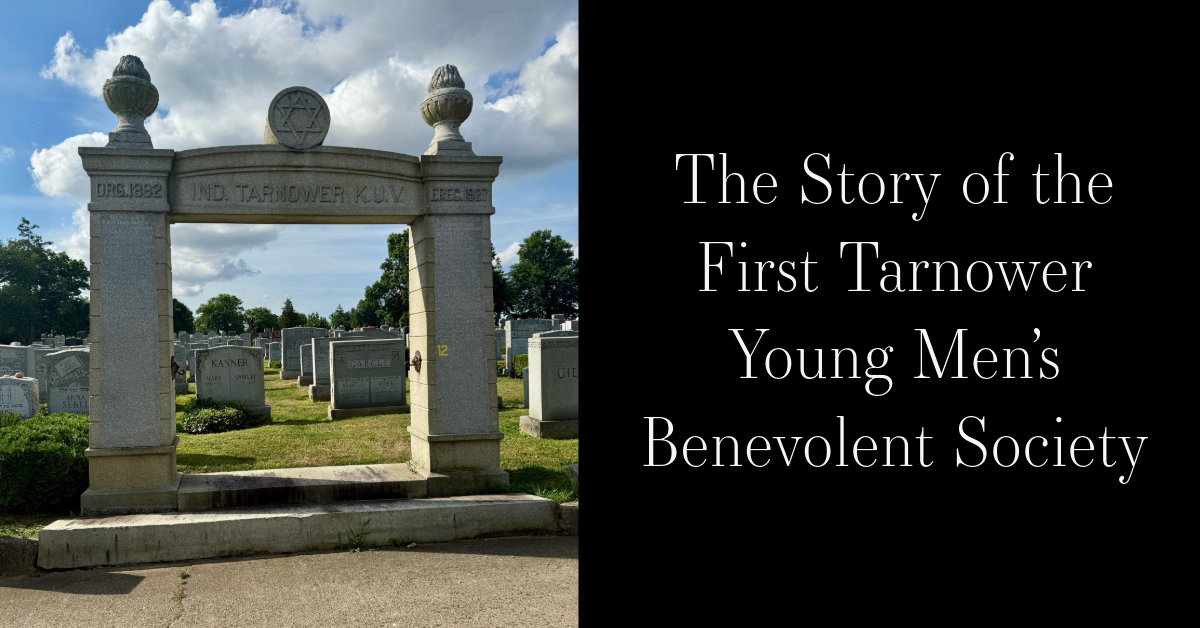Story Summary:
The first Dimerer Progressive Association was founded in New York (1919) by immigrants hailing from Dymer (Dimer), Ukraine. The society maintained a loan association and helped those who served in the U.S. Armed Forces during World War II. The earliest known Jewish community in Dymer is known to have existed since/during the Polish-Lithuanian Commonwealth rule. The Jews of Dymer engaged mostly in the areas of trade and craftsmanship. Following the Russian pogroms, the Jewish community decreased significantly. Dymers' entire jewish community perished during German occupation (beginning 1941). Their legacies are carried on by the communal upkeep of the community's Jewish cemetery, and the memorials that have been devoted towards them.~Blog by Olivia Scanlon
First Dimerer Progressive Association
The first Dimerer Progressive Association was founded in New York (1919) by immigrants hailing from Dymer (Dimer), Ukraine. The society maintained a loan association and helped those who served in the U.S. Armed Forces during World War II.
The earliest known Jewish community in Dymer is known to have existed since/during the Polish-Lithuanian Commonwealth rule which began in the 16th century and ended in the 18th century. The Jews of Dymer engaged mostly in the areas of trade and craftsmanship. In 1847, census showed that there were 273 Jews in Dymer, and in 1887, 624 Jews. By 1923, the Jewish population had decreased significantly to 145. This was most likely a result of the pogroms that were taking place. Namely, from 1917 to 1922, Dymers’ Jews suffered greatly during the Russian Civil War with some having been killed in the pogroms and damage to their town having amounted to 18,000 rubles (~$174 in today’s U.S. dollars).
During the early days of German occupation (June 1941), over 70 of Dymers’ Jews were killed. The others were then deported to Kyiv. By November of the same year, the entire Jewish community of Dymer had perished at the hands of members from the Sonderkommando 4a (a unit assigned to the Einsatzgruppe C) in Babi Yar. Ukrainians who were married to Jews, and the children of mixed marriages were also targeted. The town of Dymer was liberated by the Soviet Army on November 4, 1943. After the war, some Jewish families returned to Dymer but communal life was never restored. In the 1970s, most families emigrated to the United States. In 1989, there were only ~20 Jews remaining, most who were assimilated descendents of Dymers’ last Jews.
The history of Dymers’ Jewish community is recognized due to the extensive research and oral histories carried out by Tetyana Neiman. Today, Dymers’ Jewish cemetery still stands, with its last burial having been in 1969. It continues to be maintained by the community. While the Jewish prayer house had been sold and converted into an inn, the structures’ historical significance is remembered (Insurance plate dated 1835). In 2011, a memorial was erected in the Dymer Jewish cemetery, and in 2015, a new fence surrounding the cemetery was placed also in memory of Dymers’ Jewish community.
http://yivoarchives.org/index.php?p=collections/controlcard&id=33375
https://jewua.org/dymer/
https://iajgscemetery.org/eastern-europe/ukraine/dimer
https://cja.huji.ac.il/browser.php?mode=set&id=45988









